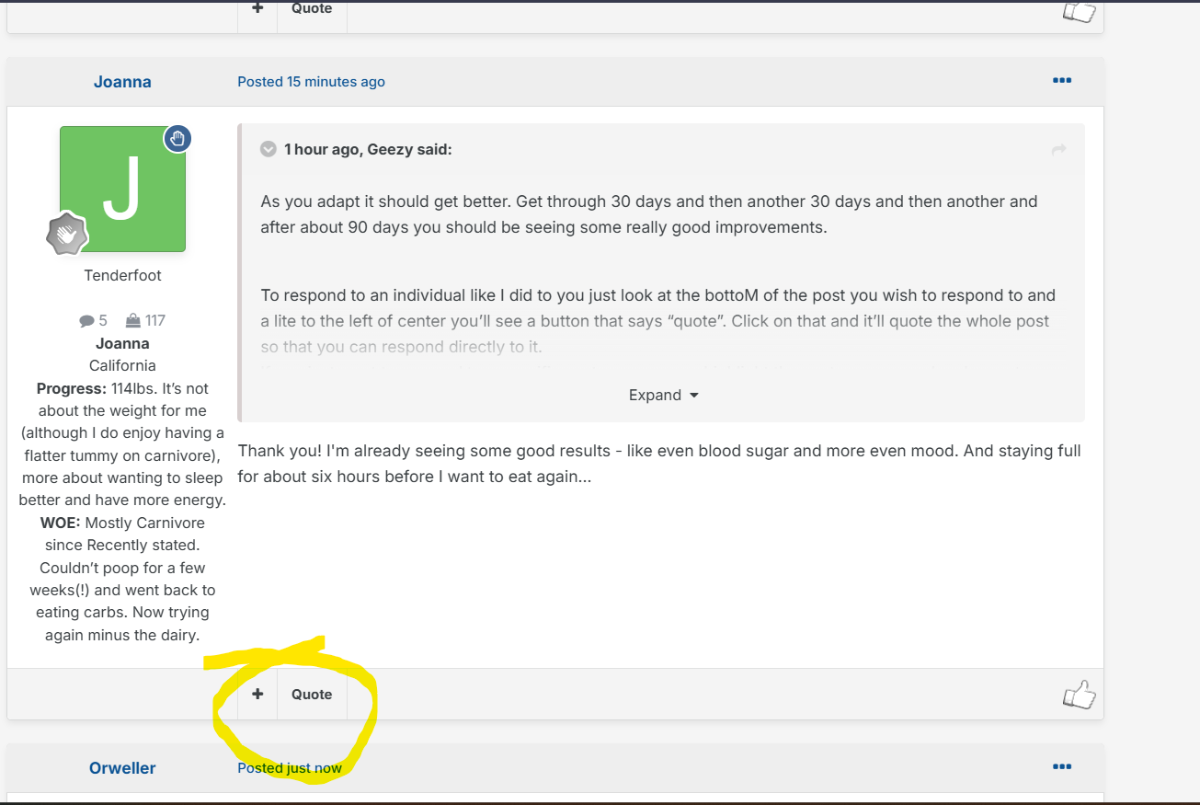Welcome to our Carnivore / Ketovore / Keto Online Community!
Welcome to Carnivore Talk! An online community of people who have discovered the benefits of an carnviore-centric ketogenic diet with the goal of losing weight, optimizing their health, and supporting and encouraging one another. We warmly welcome you! [Read More]
- Replies 10
- Views 9.3k
- Created
- Last Reply
Most Popular Posts
-
Be aware Lynn that it can take a year or longer for your blood markers to stabilize on the carnivore WOE. As your body is transitioning to a meat based diet things can get a little wacky but it’s all
-
Your kidneys are perfect. Your kidney function is based on your creatinine value which is 0.73 which is perfect. BUN means very little. For peace of mind watch this from 4:00 mark: ----
-
Thank you, Quinton. 🙏🏼








Hello All.
We had bloodwork done before starting Carnivore (thanks again Bob for recommending Own Your Labs).
Some items I have questions about:
My BUN is 25, indicated as "High".
BUN/Creatinine ratio is 34, "High". (These worry me because my Dad died of kidney failure from a wretched hereditary disease.)
Total cholesterol 317, "High"
LDL 208, "High"
Triglycerides 91
HDL 95
VLDL 14
Again, this bloodwork was done prior to starting Carnivore (our diet was high-fat plant-based Keto, but with lots of butter, cream and cheese).
Anyone out there well-versed in interpreting labs...?